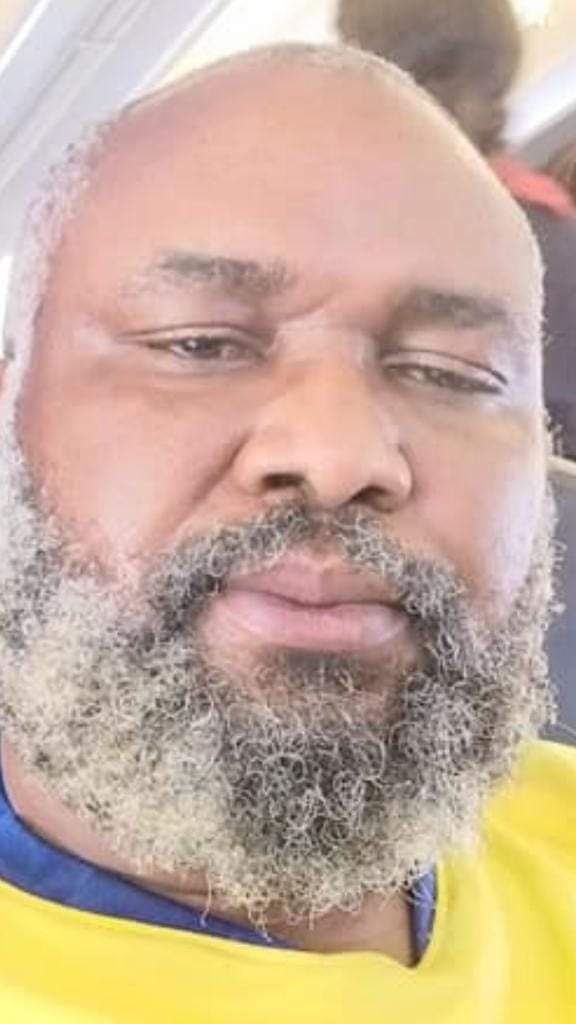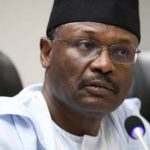BY EMMANUEL ONWUBIKO
“A few lines of reasoning’s can change the way see the World”.
-Steven E. Landsburg.
I was actually ruminating on a very important theme that traverses all of humanity and indeed already indulged in my compulsive lifestyle of deeply reflecting on my newly acquired books (75% of my annual incomes go into buying of freshly minted, topnotch books, hard copies) and one of the most recent copies occupied my consciousness because of the opening quotation aforementioned.
Titled “Basic Economics: a common sense guide to the economy”, this quotation rather led me to think much more about the threats to the Nigerian economy by the widespread use of fake news by all kinds of government officials with dominant reference to federal government officials. Lies, misinformation and outright fake news are increasingly being forced down the throats of millions of Nigerians by those who run the government and therefore have seamless access to our humongous commonwealth and patrimony which they misapply as their whims and caprices dictate to them.
A few lines of reasoning’s can indeed change the way and the dynamism of our weltanschauung. So I decided to engaged in philosophical reflection on why the citizens should actively become involved in civil governance of their nation and states by first and foremost learning to hold elected and appointed officials to account since accountability and transparency are the bedrocks of constitutional democracy.
However, the tolerable spread of fake news by government officials have considerably damaged the nation’s global reputation and inevitably robbed us of some giant economic achievements as a Sovereign nation and as individuals.
This is why it must constitute a source of indignation and rational angst for all citizens when we continue to hear and read key government officials make pronouncements that can at best be termed as fake news. Some of these jaundiced false information are packaged in the guise of propaganda.
A little analysis of the conceptual underpinning of the term of fake news will unveil to us the enormous amount of damage that it does not just to our national prosperity but to our reputation in the comitty of nations.
The terms ‘propaganda’, ‘misinformation’ and ‘fake news’ often overlap in meaning, says a team of researchers. They are used to refer to a range of ways in which sharing information causes harm, intentionally or unintentionally – usually in relation to the promotion of a particular moral or political cause or point of view.
It is possible to separate out three clearly different uses of information which fall into this category:
Mis-information – false information shared with no intention of causing harm;
Dis-information – false information shared intentionally to cause harm;
Mal-information – true information shared intentionally to cause harm.
Although none of these phenomena are new, they have taken on new significance recently with the widespread availability of sophisticated forms of information and communication technology. The sharing of text, images, videos, or links online, for example, allows information to go viral within hours.
BROOKINGS.EDU, a US study Institute spoke on fake news thus: “Journalism is in a state of considerable flux. New digital platforms have unleashed innovative journalistic practices that enable novel forms of communication and greater global reach than at any point in human history. But on the other hand, disinformation and hoaxes that are popularly referred to as “fake news” are accelerating and affecting the way individuals interpret daily developments. Driven by foreign actors, citizen journalism, and the proliferation of talk radio and cable news, many information systems have become more polarized and contentious, and there has been a precipitous decline in public trust in traditional journalism.”
“Fake news and sophisticated disinformation campaigns are especially problematic in democratic systems, and there is growing debate on how to address these issues without undermining the benefits of digital media.”
In order to maintain an open, democratic system, the Brookings institution posits, it is important that government, business, and consumers work together to solve these problems.
Governments, they say, should promote news literacy and strong professional journalism in their societies.
The news industry must provide high-quality journalism in order to build public trust and correct fake news and disinformation without legitimizing them.
They affirmed that technology companies should invest in tools that identify fake news, reduce financial incentives for those who profit from disinformation, and improve online accountability. Educational institutions should make informing people about news literacy a high priority. Finally, individuals should follow a diversity of news sources, and be skeptical of what they read and watch.”
However, the shocking thing that we keep seeing in our clime is that unlike in Europe and the United States of America, whereby those governments have made substantial investments to combat fake news and attempts by external forces to hack into their computer systems and disrupt democracy, in Nigeria, the greatest purveyor of fake news are the governments at both the centre and at sub-national levels.
The United States President Joe Biden recently was up in arms against purveyors of fake news who abuse and manipulate gullible audiences to pollute and contaminate their minds about the efficacy of the COVID-19 Vaccines. Around December last year, Joe Biden spoke and from that speech we can glean that he is forcefully against the spread of fake news.
Hear Joe Biden: “Let me be clear: Thanks to the prior administration and our scientific community, America is one of the first countries to get the vaccine. And thanks to my administration and the hard work of Americans, we led a rollout that made America among the world leaders in getting shots in arms.
But uptake slowed this summer as vaccine resistance among some hardened. Look, the unvaccinated are responsible for their own choices. But those choices have been fueled by dangerous misinformation on cable TV and social media.
You know, these companies and personalities are making money by peddling lies and allowing misinformation that can kill their own customers and their own supporters.
It’s wrong, it’s immoral, and I call on the purveyors of these lies and misinformation to stop it. Stop it now…”
On January 14th 2022, the Senator representing Borno South in the red chamber of the National Assembly and Chairman Committee on Army, Mohammed Ali Ndume said there was no attack at the Police Training School in Gwoza as alleged and reported in the media. But his information is fake news.
Ndume, who hails from Gwoza, said if there was such, he would be in the know as his people would have called to inform him. Few hours later, the invasion by terrorists was confirmed by the Borno State Commissioner of Police, Abdul Umar.
The Borno State Police chief Mr. Umar, while addressing a press conference in Maiduguri said: “The attention of the Borno State Police Command has been drawn to news making round on Social Media, alleging that an undisclosed number of PMF personnel were abducted at the Police Mobile Training College, Gwoza.
“The Command wishes to categorically debunk the news, consider it as “fake news” and also to inform the general public that the insurgents, who attacked the PMF training college on the 13th January, 2022 at about 2022hrs were successfully repelled by our gallant officers and men.”
On December 19th 2020, the Senior Special Assistant to President Muhammadu Buhari on Media and Publicity, Garba Shehu, apologised for spreading fake news on the number of students that were kidnapped at the Government Science School in Kankara, Katsina State, last week Friday.
It was reported how gunmen on December 11 invaded the public school and abducted over 300 students.
The kidnap incident triggered outrage on social media with many Nigerians calling on President Muhammadu Buhari to sack the military chiefs immediately.
While the Governor of Katsina State, Aminu Masari, confirmed that over 300 students were missing after the attack, Mr Shehu told BBC Hausa on December 14 that only 10 students were taken away by the gunmen.
Meanwhile, six days after their abduction, the 344 kidnapped students were freed and it became clear that Mr Shehu misinformed the public.
The students had met with President Buhari in Katsina and some of them also shared their experiences while with the gunmen.
Following a backlash on social media, Mr Shehu took to Twitter then to apologise for sharing unverified information despite being a top aide to Mr Buhari whose administration has repeatedly vowed to discipline purveyors of fake news.
“I apologize for the incorrect communication citing that only 10 students were kidnapped at the science school, Kankara. This communication of numbers was provided by persons that should ideally know. These numbers were seen to conflict with what was available at that time.”
“Please understand that this communication was in no way done to downplay the seriousness of the situation. Please accept my sincere apologies on this matter as we continue to move our great Nation Nigeria forward. Thank you”, he wrote on Twitter.
Mr Shehu was, however, not the only top official that spread wrong information while the students were still in captivity.
Another official, Abike Dabiri-Erewa, the Chairman of Nigerians in Diaspora Commission, on her verified Twitter handle, claimed that all the schoolboys had been rescued. The duo were practicing journalists prior to their political appointments. This is the more worrying reason their deliberate act of spreading fake news should be looked at from a very serious perspective and not just be seen as a mistake. These are professional misdemeanours.
Two years back, the Minister of Information, Lai Mohammed, came under fire after denying the National Assembly is considering a bill to regulate the activities of Nigerians on social media.
In an interview with the German broadcaster, DW, aired Mr Mohammed said he was speaking “authoritatively” that the controversial “Protection from Internet Falsehood and Manipulations Bill’ was not before the National Assembly.
Tim Sebastian, host of the channel’s Conflict Zone, had asked the minister four times about the bill to buttress his argument that the Nigerian government had grown intolerant of criticisms, and was clamping down on citizens’ basic rights.
Each time, Mr Mohammed replied he did not know about the infamous legislation and insisted it was not before the parliament.
“I am not even aware of that bill,” the minister said the first time, before adding: “There is no such bill before the house.”
“I can say authoritatively, there is no such bill,” he affirmed, appearing to confuse the interviewer.
Mr Mohammed, who has been minister since 2015, was clearly making a false claim. The controversial social media bill was sponsored by the Niger East senator, Mohammed Musa.
The bill, which seeks to “criminalize the use of the social media in peddling false or malicious information”, caused a major backlash in 2019 with many Nigerians condemning it.
The bill has not been withdrawn yet. If passed and signed into law, it will punish anyone found guilty of its provisions with a N300,000 fine, three years imprisonment, or both. Corporate organisations face a fine not exceeding N10 million.
The bill, alongside another targeting “hate speech”, has been widely criticised in and outside of Nigeria.
Ahead of the introduction of the bill, the federal government through Mr Mohammed had vowed to crack down on fake news and hate speeches in the country’s social media space.
Mr Mohammed said at the time that the government was “working to inject rationality into the social media space in the country, to tackle fake news and hate speeches spreading without restriction.”
On November 15, 2019, the information minister held a meeting with the Guild of Corporate Online Publishers in Abuja and said there was no going back on the social media regulation. He said public criticism of the bill will not deter the government from the plan. The statement showed the minister was aware of the bill and even supported it.
When the Nigerian Union of Journalists cautioned the federal government on the bill, Mr. Mohammed asked NUJ to support the bill because “they will be the first victim when the people lose confidence in the media due to the reckless actions of non-journalists and purveyors of fake news and hate speech.”
He said the bill did not serve to “stifle free speech or gag journalists” rather “only purveyors of fake news and hate speech need to be worried.”
“Let me be clear: We are going ahead with our plan to stop, as much as we can, the anarchists, non-patriots, and purveyors of fake news and hate speech. No responsible government will sit by and allow these purveyors of fake news and hate speech a free reign. That’s why many countries of the world are taking measures to regulate the social media,” Mr. Mohammed said.
But asked about the bill on DW, Mr Mohammed denied knowledge of the legislation.
Hear the minister: DW: What also worried people enormously was your decision to submit a bill which in its original form would have seen anyone convicted of so-called hate speech actually sentenced to death by hanging under particular circumstances. You actually wanted and you sought authorization from parliament to kill people because of something they said. Why would you do a thing like that?
Mohammed: I think what is even more shocking is the ignorance of people, there is what is called separation of power in major democracies. This particular bill we are talking about is a bill submitted not by the executive but by the legislative arm of government. So how can you accuse the executive. We did not submit this bill; it is a private member’s bill by a senator which is …
DW: And you’re telling me you didn’t want it to go through, is that right?
Mohammed: Do we have a choice in which bills go through or not? Which bill is being discussed? There’s public hearing. You see the government does not come in until when the bill has been passed.
DW: And you didn’t use any influence to get that passed?
Around May 17th 2021, the media reported that despite repeated claims by the President Muhammadu Buhari-led Federal Government that Boko Haram terrorists have been degraded and confined to the North-east alone, recent revelations by some Nigerian state governors give cause for worry.
Minister of Information, Lai Mohammed in 2019 said the military has “successfully defeated” Boko Haram insurgents. He said the country is now facing a fresh crisis, which is called a “global insurgency.”
Mr Mohammed also said Nigerian troops have “successfully cleared the remnant of the home-grown insurgency called Boko Haram and are now being confronted by a fresh crisis, a global insurgency”.
“A faction of Boko Haram has aligned with the global terror group, ISIS, to form ISWAP, the Islamic State’s West African Province. In other words, ISIS now has a strong foothold in West Africa – with Nigeria at the forefront of the battle against them.
There must be strict sanctions imposed on government officials who are serviced by the taxpayers but who take pleasure in dishing out fake news. Nigeria must be a Country that must never tolerate fake news and it is anathema if government has now become notorious purveyors of fake news. This virus of spreading fake news must be stopped by all means.
* EMMANUEL ONWUBIKO is head of the HUMAN RIGHTS WRITERS ASSOCIATION OF NIGERIA (HURIWA) and was federal commissioner of the NATIONAL HUMAN RIGHTS COMMISSION OF NIGERIA.






